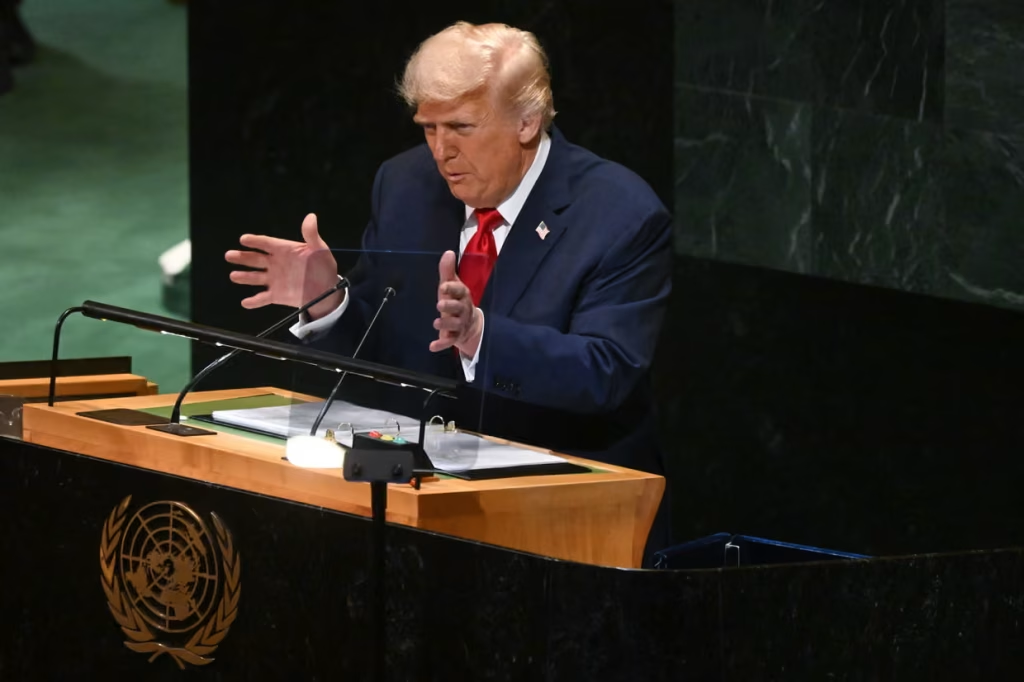In a speech that resonated with his supporters and raised eyebrows among critics, Donald Trump presented a raw and unfiltered exposition of his worldview during his recent address to the United Nations. Spanning nearly an hour, the speech served as a clarion call for what many describe as “Trumpism unplugged” — a celebration of American exceptionalism intertwined with a relentless assault on multilateralism.
Beginning with a self-congratulatory tone, Trump declared that the United States was experiencing a “golden age,” attributing to himself the resolution of seven wars, an assertion that many observers find dubious yet echoes his claims for a potential Nobel Peace Prize. This bold assertion set the stage for a wider critique of global institutions, particularly the UN, which he lambasted for its lack of efficacy. “The UN is supposed to stop invasions, not create them and not finance them,” he declared, criticising the organisation for not doing enough to curb the influx of asylum seekers into the US.
Among the highlights of his speech was a sharp critique of the UN’s operational effectiveness. Citing concerns over its bureaucratic inertia, Trump ridiculed the body for merely drafting “strongly worded letters” that ultimately lacked substance. His analysis, while abrasive, taps into a growing consensus among critics of the UN regarding its struggles to navigate international conflicts amidst a politically fractured landscape.
Trump’s rhetoric took a scathing turn as he directed his scorn towards European allies, whom he blamed for what he described as an overwhelming invasion of “illegal aliens” and misguided investments in renewable energy. “Europe is in serious trouble,” he warned, asserting that the continent was undermining its own stability through policies he characterised as “suicidal.” His comments about climate change sparked audible gasps as he labelled it “the greatest con job ever perpetrated on the world,” offering a defence of fossil fuels as the more economically viable option for European nations.
This cultural lens through which Trump views Europe reveals a deeper undercurrent of concern regarding what he perceives as a threat to the continent’s “Judeo-Christian heritage.” The emphasis on defending religious values highlights an administration keen on promoting Christianity amid the rising tides of secularism and multiculturalism in Europe. “Let us protect religious liberty,” he implored, bringing further attention to his administration’s positioning within global discourse surrounding faith and governance.
Addressing the ongoing war in Ukraine, Trump made headlines by suggesting that Ukraine could potentially reclaim its territory from Russian forces, positioning himself as a sudden optimist about the conflict. However, his assertion also indicated a pivot towards a more critical stance on Russia, labelling it a “paper tiger” while insisting European nations cease purchasing Russian energy. His remarks raise questions about his understanding of the geopolitical landscape, especially considering the complex interplay of energy dependencies and military support in the region.
Throughout his speech, Trump’s characteristic braggadocio was on full display, asserting, “I am really good at this stuff,” urging global leaders to heed his warnings about their countries heading “to hell.” Yet, while the world once laughed at his unconventional assertions, this year’s audience responded primarily in silence, reflecting a growing unease with his approach to international relations.
